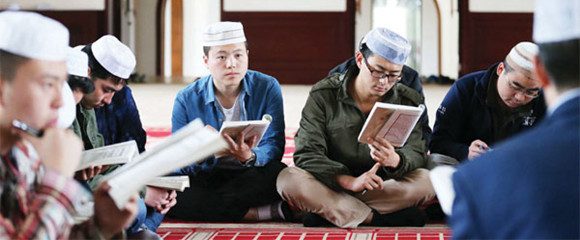The people have key role in debt fight
Updated: 2016-05-13 08:28
By Ed Zhang(China Daily Europe)
|
|||||||||
Recent interview provides sober policy guidance and points to urgent need to use effective means of deleveraging
The whole world seems to be talking about the People's Daily interview on May 9 with an anonymous "authoritative figure", a one-and-a-quarter-page comprehensive review of the Chinese economy.
Three things have grabbed people's attention so far:
First, the possible identity of the interviewee. There are semiofficial sources saying the interview could have been based on things said at the very top of the Chinese leadership. It shouldn't be just guesswork. The authoritative tone of the interview, and the issues and the space it covers, made it clear enough that it should be taken as a piece of guidance on the policy level.
Second, a rare candor and sober-mindedness. Despite some positive figures among the data about the general economic performance in the first quarter, the "authoritative figure" said he didn't see an "auspicious start" to the year, as some cabinet officials had claimed.
The trajectory of China's GDP growth will stay L-shaped, instead of U-shaped or V-shaped, after it fell from an annualized 12 percent in 2010 to 6.9 percent in 2015, said the "authoritative figure".

The planned range for this year's GDP growth has been set by the government to be no lower than 6.5 percent.
It means the economy is probably at the turn of the "L", with its growth rate slashed almost by half, and it won't pick up for the next couple of years. In fact, as the interviewee said, the nationwide growth rate is unlikely to plummet even without increasing financial stimulus from the central government.
Third, a very serious concern with the country's soaring debt level as it poses a threat of "systemic financial risks". That, as seen by some overseas observers, made the People's Daily's stand on the Chinese debt problem resemble what George Soros - the international financial capitalist known as the "man who broke the Bank of England" - said earlier: that China could be at the top of a debt precipice comparable to the one the United States tumbled off in 2008.
With a debt level of 230 to 280 percent of its GDP, the interviewee warned: "No tree can grow into the sky." Any mismanagement of the country's debt situation, with the implication that there had already been at least some mismanagement, would cause fatal consequences.
Soros may be scaremongering. But the People's Daily article is good for all local officials to study and to follow. The message cannot be clearer. If it is from the top leadership, as some readers speculated, then what it represents is a requirement on the policy level - cut the debt level, by whatever means.
Deleveraging, or cutting down indebtedness, is in fact listed as one of the five tasks of China's supply-side reform for 2016. Now that half a year already has passed, at least some action should be taken during the remainder of the year, as the interview suggests.
Overseas observers say they see an inherent contradiction: Since the economy's recent growth was to such a great extent driven by debt, how could any effort at debt control not cause a deeper slowdown?
Indeed, making state-owned banks swap their loans into equity ownership is only a way to reduce debt in the accounting books, and cannot be considered an elixir. Whenever it is used, it may affect the banks' performance instead.
In practice, the debt-equity swap can be only a small solution. It can be used only in cases of really competitive corporations. But if the corporations really are competitive, most probably they don't face the problem of a default.
A large-scale, campaign-style deleveraging effort is only thinkable by involving private capital. Or, to sustain the economy's growth rate while tightening up the credit line can be done only by relying on more private spending and private investment.
Chinese officials must have watched with jealousy the groups of the country's newly rich people touring abroad buying not just high fashion, but new houses and other assets, along with residential status and a second travel document. The people's power can never be taken lightly.
Yet how to work with people like them, by providing them with a duly protected new channel of investment, is an area in which China has yet to come up with a comprehensive plan in the many years since the door was opened to private capital in a limited number of industries and services. It is only in one or two industries that state-owned enterprises are faced with worthy competition from large, privately owned companies.
Despite the comprehensive diagnosis of the economy's state, China has yet to come up with a comprehensive therapy, one in which private capital, or the people's financial power, is to play an indispensable role. And for that, the country's reforms in the 1980s and '90s already offer a good lesson.
The author is editor-at-large of China Daily. Contact the writer at edzhang@chinadaily.com.cn
Today's Top News
China urges EU to honor MES status, despite parliamentary vote
Generation of new imams preach peace
Streaming stars
China vows to step up anti-corruption co-op
Chinese entrants in public speaking contest fight hard
Global anti-corruption summit opens in London
Britain raises threat of terror attacks to higher level
Chinese students to benefit from EU rules easing
Hot Topics
Lunar probe , China growth forecasts, Emission rules get tougher, China seen through 'colored lens', International board,
Editor's Picks

|

|

|

|

|

|







